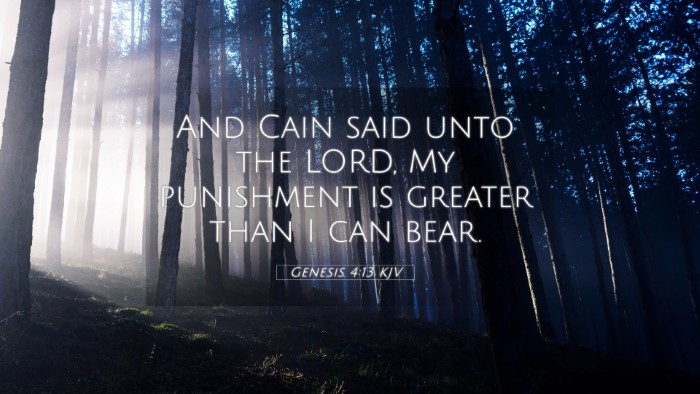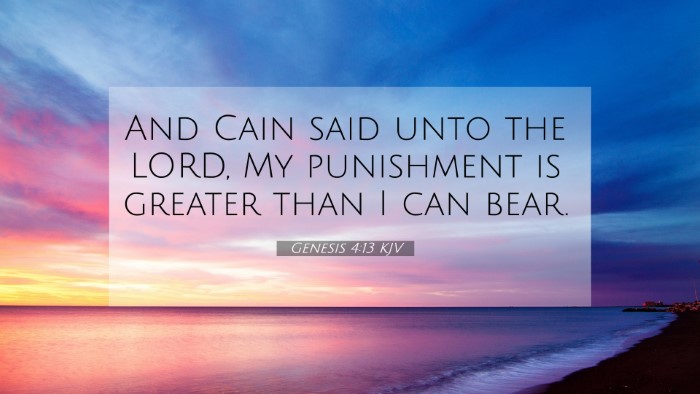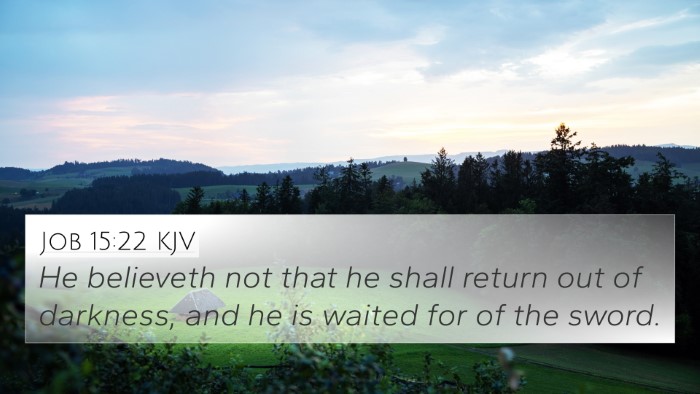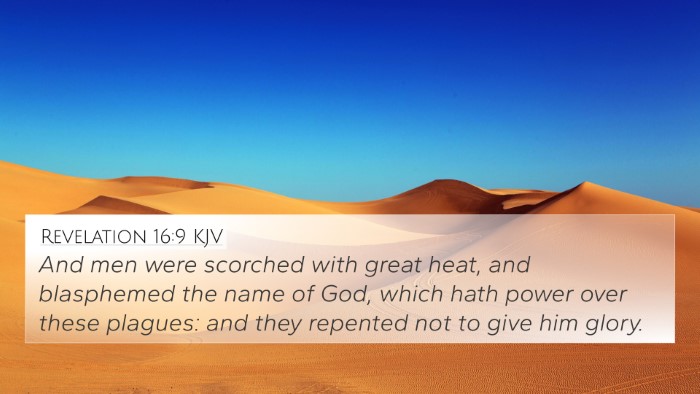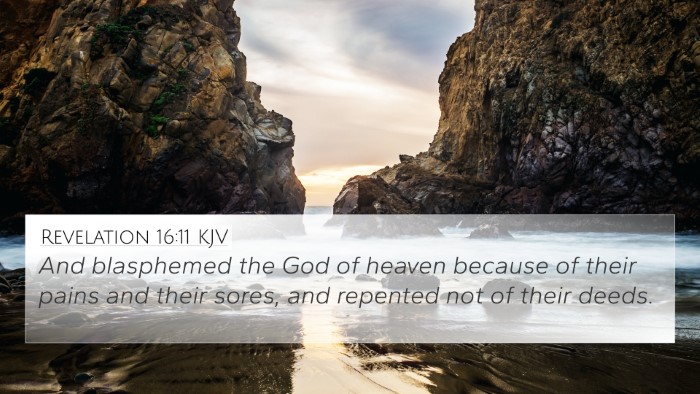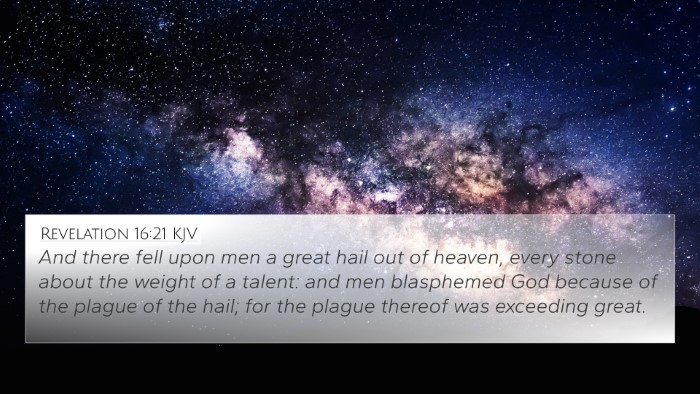Understanding Genesis 4:13
Genesis 4:13 reads, "And Cain said unto the Lord, My punishment is greater than I can bear." This verse occurs in the context of Cain’s reflection upon the judgment pronounced upon him after the murder of his brother Abel. Cain's lamentation indicates not merely a fear of the punishment but also a profound acknowledgment of his guilt and its ramifications.
This verse encapsulates themes of guilt, consequence, and the weight of one's actions. To fully understand this verse, one can look into various public domain commentaries which provide valuable insights. Here’s a summary based on the analyses of scholars like Matthew Henry, Albert Barnes, and Adam Clarke.
Insights from Commentaries
- Matthew Henry: Henry emphasizes the impact of sin and the subconscious realization of its consequences. Cain's cry reflects an awareness that his actions have led him to a separation from both God and community, thus indicating the weight of moral failure.
- Albert Barnes: Barnes highlights the desperation in Cain’s voice. The punishment described is not only physical but emotional and spiritual. Cain feels that he cannot endure the alienation from God that his acts have incurred.
- Adam Clarke: Clarke notes the psychological state of Cain as one of despair. The punishment is portrayed as a heavy burden that he fears he will not be able to endure, revealing the inner turmoil following the act of fratricide.
Cross-References and Thematic Connections
Genesis 4:13 connects to several other Bible verses, illustrating the broader themes of guilt, divine judgment, and the nature of sin. Here are some pertinent references:
- Genesis 4:9: Cain’s attempt to deny his responsibility for Abel’s whereabouts highlights the theme of guilt.
- Genesis 3:17-19: The curse on Adam for disobedience sets a precedent for judgment that Cain is also now facing.
- Proverbs 28:13: "He who covers his sins will not prosper, but whoever confesses and forsakes them will have mercy." This speaks to the necessity of facing one's guilt.
- Psalm 38:4: "For mine iniquities are gone over my head; as a heavy burden they are too heavy for me." This resonates with Cain’s statement about the unbearable nature of his punishment.
- Matthew 27:4: Judas Iscariot shows remorse for betrayal, relating to the theme of guilt and seeking reconciliation.
- Romans 3:23: "For all have sinned and fall short of the glory of God," connecting to the universal nature of guilt and need for redemption.
- 1 John 1:9: Promises forgiveness if we confess our sins, which contrasts with Cain's despair.
Theological Reflection
The struggle between Cain and the consequences of his actions reflects a fundamental aspect of human experience—the confrontation with guilt. Cain's reaction to his punishment further serves as a reminder of how sin can estrangement one from God. It is a recurring theme throughout Scripture, where accountability is met with divine mercy.
Applications for Study
For anyone seeking to deepen their understanding of Genesis 4:13 and similar verses, here are some effective methods for applying cross-referencing techniques:
- Utilize a Bible concordance to find related themes and verses conveniently.
- Engage in cross-reference Bible study to explore parallels in narratives like Cain’s and other biblical figures.
- Employ Bible reference resources that systematically categorize themes across both Testaments for deeper insights.
Conclusion
In conclusion, Genesis 4:13 opens a window into the complexities of sin, guilt, and the need for redemption, reinforced by cross-referencing other verses that share similar themes. The insights garnered from public domain commentaries enrich one’s understanding and illustrate how interconnected the scriptural texts are. The thematic connections and biblical parallels draw a map of humanity's continuous struggle with sin and the hope found in divine mercy.

